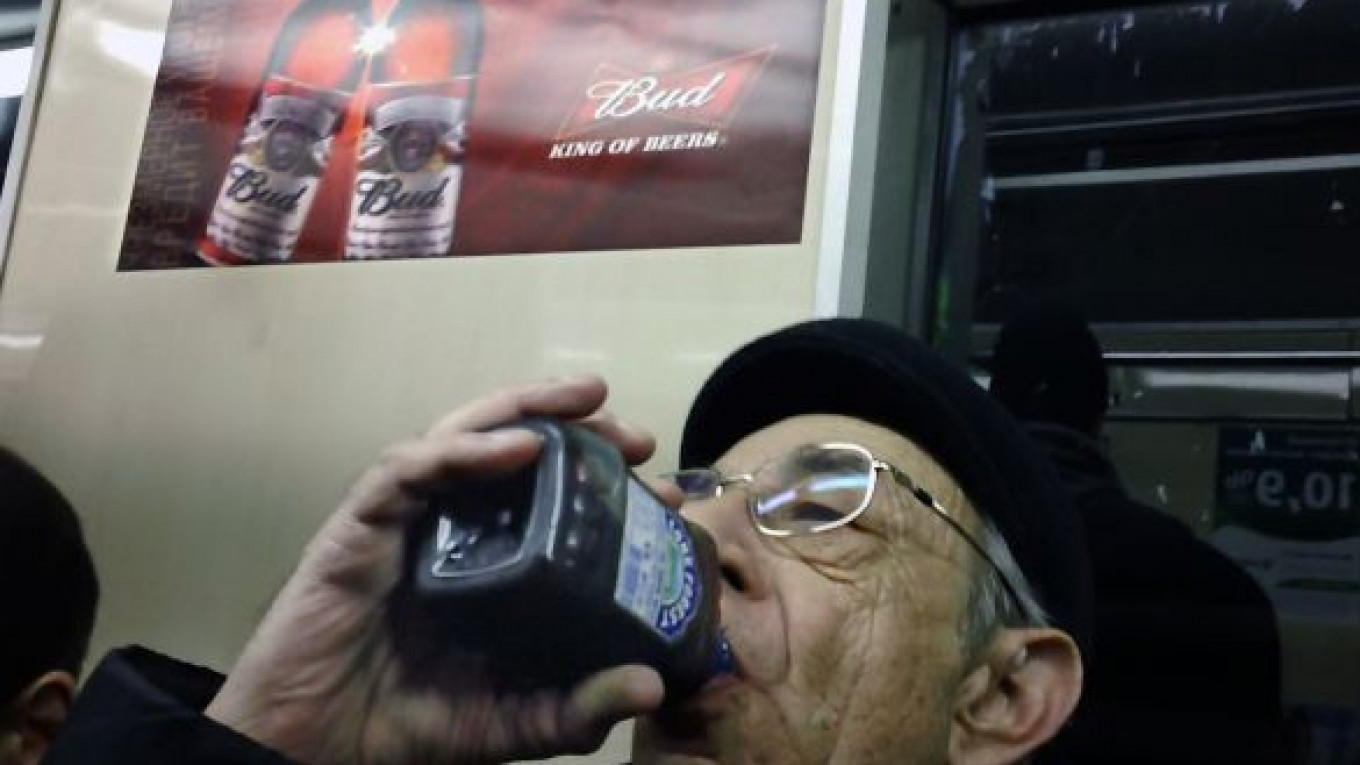Print media holdings and Internet portals will become a bit drier this year following the government's decision to prohibit them from publishing alcohol advertisements.
President Vladimir Putin signed off on the changes to the advertising law last Saturday, but representatives of the alcohol industry and media outlets are concerned about the effect these rules will have on their revenues and ability to reach out to customers.
The new rules banning alcohol advertisements are effective immediately in Internet sources and will take effect in print media on Jan. 1, 2013, according to a press release published on the president's website.
The measures are meant to lower consumption of alcohol, but industry representatives are doubtful of their logic.
"There is no such person who, never having drank, would start to consume alcohol after looking at an alcohol ad," said Dmitry Dobrov, chairman of the Union of Alcohol Producers. Dobrov added that alcohol ads don't lead to greater consumption rates, but rather help existing customers decide which brands to buy.
The total advertising market for Internet and print media in 2011 was 42 billion ($1.2 million) and 40.5 billion rubles, respectively, Kommersant reported. Alcohol accounted for about 2 percent of this budget.
Experts estimate that total losses for media budgets from the new rules could add up to 8.5 billion rubles.
Dobrov said he was left confused about what the ban entailed. In regards to online ads, he said it was not clear what exactly would be considered an ad — whether a corporate site or a comment in a forum praising an alcoholic product would qualify.
"There are a lot of questions," Dobrov said. "We think that [the authorities] really hurried with this law."
Media publishing houses are already feeling the sting from the ban.
Maxim magazine gets 18 percent of its advertising from alcohol producers, said the magazine's advertising director Alexei Stavrovsky. He added that the magazine is now looking for alternate advertisers to fill the gap.
Alcohol producers are among the top five advertisers in Esquire, a sister publication of The Moscow Times, along with clothing, watch, perfume and car companies, said the magazine's advertising manager Alexei Iordanov.
"This is a serious loss for our magazine and for all glossy magazines," Iordanov wrote in an email. "Ads for premium alcohol, targeted at a well-off audience, used to appear in monthlies. It is not clear what channels will be used now to deliver this information."
Another batch of changes related to alcohol advertising took effect this week. As of Monday, alcohol ads, including ads for beer, will not be allowed on public transportation, in airports or in railroad and bus stations.
There is also now a ban on ads for any type of alcohol on television, radio, and street billboards, though alcohol producers will still be able to advertise at retail points where their products are sold.
A Message from The Moscow Times:
Dear readers,
We are facing unprecedented challenges. Russia's Prosecutor General's Office has designated The Moscow Times as an "undesirable" organization, criminalizing our work and putting our staff at risk of prosecution. This follows our earlier unjust labeling as a "foreign agent."
These actions are direct attempts to silence independent journalism in Russia. The authorities claim our work "discredits the decisions of the Russian leadership." We see things differently: we strive to provide accurate, unbiased reporting on Russia.
We, the journalists of The Moscow Times, refuse to be silenced. But to continue our work, we need your help.
Your support, no matter how small, makes a world of difference. If you can, please support us monthly starting from just $2. It's quick to set up, and every contribution makes a significant impact.
By supporting The Moscow Times, you're defending open, independent journalism in the face of repression. Thank you for standing with us.
Remind me later.






